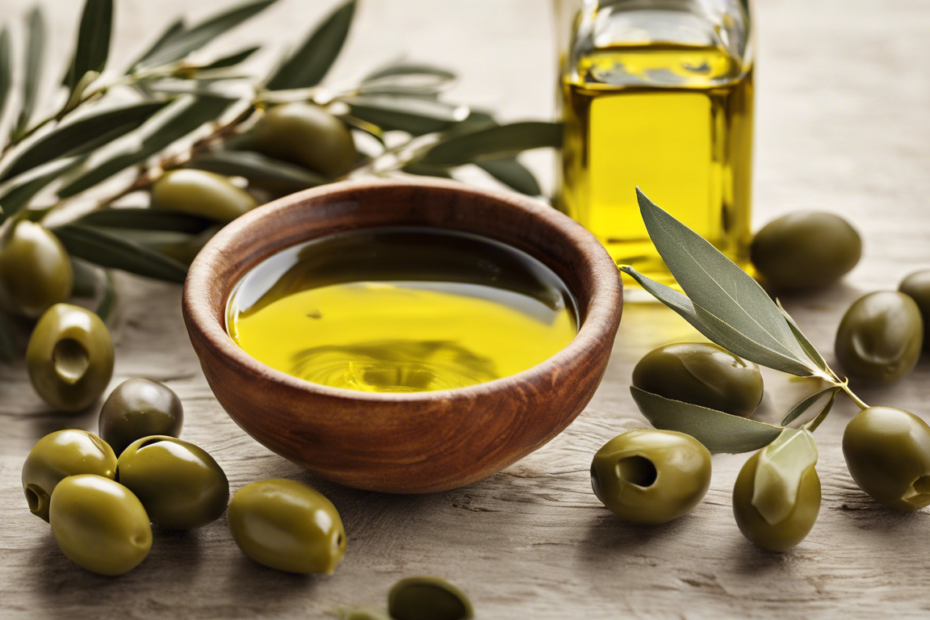When it comes to heart health, what you pour on your salad can make a big difference!
Olive oil, often celebrated for its rich flavor and versatility, also has a significant impact on cholesterol levels.
In this article, we’ll explore the different types of cholesterol, the ways olive oil can support your heart health, and some delicious tips for incorporating this golden elixir into your daily meals.
So, let’s dive into the heart-healthy benefits of olive oil!
Key Takeaways
- Cholesterol is not all bad; understanding its types is crucial for heart health.
- Olive oil is rich in monounsaturated fats that can lower bad cholesterol levels.
- Incorporating olive oil into your diet can support cardiovascular health and improve cholesterol profiles.
- Using olive oil as a dressing or cooking oil adds flavor while benefiting heart health.
- Making simple substitutions in your cooking can significantly impact your cholesterol levels.
Understanding Cholesterol and Its Types
When it comes to understanding cholesterol and how olive oil plays into heart health, it’s essential to know that not all cholesterol is created equal.
There are two main types: LDL (low-density lipoprotein), often referred to as ‘bad’ cholesterol, and HDL (high-density lipoprotein), known as ‘good’ cholesterol.
Incorporating olive oil into your diet can help tip the balance in favor of HDL, as this healthy fat is packed with monounsaturated fats and antioxidants that promote healthier cholesterol levels.
So, whether you’re drizzling it over a fresh salad, using it to sauté veggies, or dipping crusty bread in it, olive oil not only enhances the flavor of your meals but can also support your heart health by potentially lowering those pesky LDL levels.
It’s a simple change that can add a delicious twist to your culinary game while boosting your well-being!
The Role of Olive Oil in Heart Health
Understanding cholesterol can feel a bit overwhelming, but it’s super important for our heart health.
Cholesterol comes in two main types: LDL, often dubbed the ‘bad’ cholesterol because it can lead to plaque buildup in your arteries, and HDL, the ‘good’ cholesterol which helps clear out bad cholesterol from your bloodstream.
Now, where does olive oil fit into this picture?
Well, this golden liquid is not just a tasty addition to your kitchen; it’s rich in monounsaturated fats, which can help raise HDL levels while reducing LDL levels, thereby supporting heart health.
So, how can you easily incorporate olive oil into your daily meals?
Drizzling it over salads, using it as a base for marinades, or even replacing butter with olive oil when baking are all great ideas.
Plus, you can experiment with infused oils for a flavor boost.
Making simple switches to include more olive oil in your diet can not only enhance your meals with delicious aromas but also lead to heart happiness!
‘Let food be thy medicine and medicine be thy food.’ – Hippocrates
Incorporating Olive Oil into Your Diet
When it comes to cooking and health, incorporating olive oil into your diet is a game-changer, especially when you’re mindful of cholesterol levels.
Not only does this heart-healthy oil add a rich flavor to your dishes, but it also works wonders for your cholesterol profile.
Olive oil is packed with monounsaturated fats, which are known to boost your good cholesterol (HDL) while helping to reduce bad cholesterol (LDL).
So, whether you’re drizzling it over salads, using it for sautéing veggies, or blending it into your favorite dips, adding a splash of olive oil can transform your meals into something deliciously healthy.
Plus, its versatility makes it an easy addition to just about any recipe, ensuring that you’re not just eating well but also enjoying what you’re eating!
Frequently Asked Questions
What are the different types of cholesterol?
Cholesterol is mainly categorized into two types: LDL (low-density lipoprotein) which is often referred to as ‘bad’ cholesterol because it can build up in the arteries, and HDL (high-density lipoprotein), known as ‘good’ cholesterol, which helps remove LDL from the bloodstream.
How does olive oil help with cholesterol levels?
Olive oil is rich in monounsaturated fats, which can help lower LDL cholesterol and raise HDL cholesterol levels.
It also contains antioxidants and anti-inflammatory properties that contribute to overall heart health.
What are some easy ways to incorporate olive oil into my diet?
You can add olive oil to your salads as a dressing, use it for sautéing vegetables, drizzle it over grilled meats, or incorporate it into dips like hummus and pesto.
Is all olive oil equally beneficial?
Not all olive oils are created equal.
Extra virgin olive oil is the least processed and retains the most antioxidants and beneficial nutrients, making it the best choice for heart health.
Can I use olive oil for cooking? Does it lose its benefits?
Yes, you can use olive oil for cooking, but it’s best to use it for low to medium heat to preserve its beneficial properties.
While it may lose some antioxidants when heated, it still remains a healthier alternative compared to many other cooking oils.
